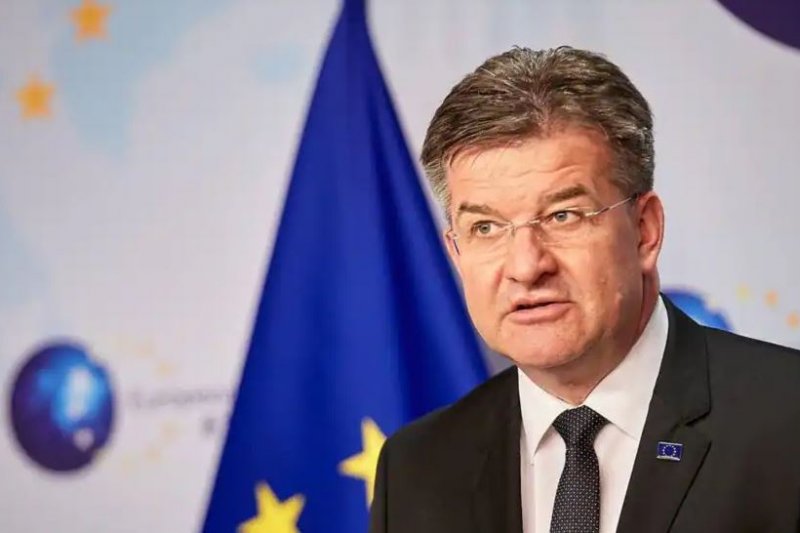Lajcak Concerned as Situation in Kosovo 'Has Worsened'
The special representative of the European Union (EU) for the dialogue between Kosovo and Serbia, Miroslav Lajcak, said on Friday that the Western Balkans region "is not looking good at all and everyone is afraid that the ghosts of the past may be resurrected".
Speaking at the 2BS Forum in Budva, Lajcak emphasized that the situation between Serbia and Kosovo has worsened after the conflict in the north of Kosovo on September 24 and that this is "a challenge for the entire region and not only for these two countries."
The Kosovo Police was attacked by an armed group of Serbs in the village of Banjske, in the municipality of Zveçan on September 24, where Sergeant Afrim Bunjaku was killed. In the ensuing fighting in the village monastery, three Serb attackers were killed.
"Unfortunately, after that event the situation is terrible. Now the most important thing is to prove the facts and draw conclusions and consequences. On the one hand, we need to work on normalization and dialogue, but on the other hand we have escalation", said Lajçak.
Serbia has rejected Kosovo's accusations that it is behind the attack described by the Kosovo authorities as an "attempt to annex the north of Kosovo". The responsibility for the attack was taken by Millan Radoicic, the former chairman of Serb List, the main party of Serbs in Kosovo that has the support of Belgrade.
On 3 October, Radoicic was arrested, interrogated and ordered to be held in police custody for up to 48 hours, before being released a day later, but without a passport and barred from going to Kosovo.
Lajcak said that the event of September 24 was not accidental, but a serious and intentional matter that should be thoroughly investigated.
Asked what can be changed, Lajcak emphasized that under the current circumstances it is not right for Kosovo to be under negative EU measures and that one of the possibilities is related to the sanctions (against Serbia), which he will supported them.
Commenting on the accusations of the Prime Minister of Kosovo, Albin Kurti, that he takes Serbia's side in the dialogue, Lajcak said that "when someone does not like a message, then they attack the one who brought the message".
"The dialogue has been going on since 2011. In the meantime, the governments in Kosovo and Serbia have changed, and the European structures have also changed. But dialogue is the only way. There is no European future without good relations between Kosovo and Serbia, and there is no normalization without dialogue," he added.
This, he emphasized, is a challenge for the entire region and not only for Serbia and Kosovo.
"During my visit to America, I met with all six presidents from the Western Balkans and all of them are concerned about the situation in the north of Kosovo", he underlined.
To the presenter's remark that there is no possibility of reaching an agreement between these two countries, Lajcak replied "you will see".
The former president of Slovenia, Borut Pahor, said in the same panel that an independent investigation should be carried out in Kosovo: "If in the end it was clear that Serbia and the leadership of Serbia were behind everything, it wanted to use force to change things in Kosovo, it would be a 'game changer'. This would mean that there was a decision in Belgrade that there is actually no place for Serbia in the EU, but that it remains one of Moscow's spheres of interest, which would be sad news."
Speaking about the enlargement, Lajcak said that for the first time he noticed that the EU is more ready for the Western Balkans than the Balkans itself.
"However, enlargement will not happen by itself. The Western Balkans region is sceptical, but take this moment seriously. It seems that Ukraine and Moldova have taken this moment seriously, and the countries of the Western Balkans have not".
The future of the Western Balkans and the importance and role of NATO are the focus of the 13th 2BS Security Forum.













